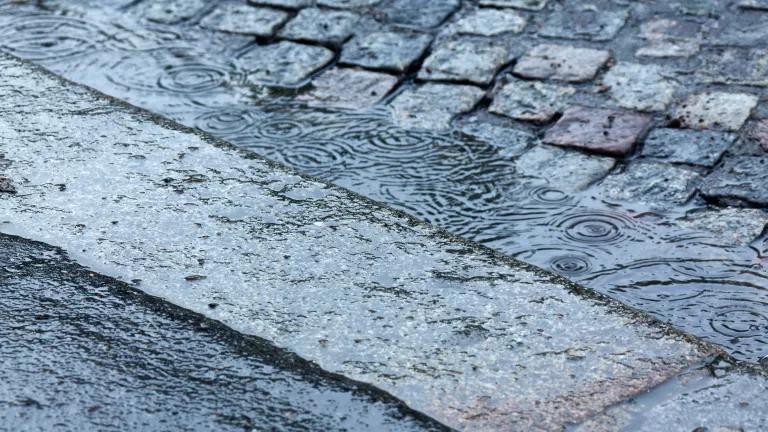6 Ways You Can Help Keep Our Water Clean
Quick and easy things you can do to reduce water pollution and runoff.

Simply by going about your daily routines—using cleaning products, walking the dog—you might be unknowingly contributing to the pollution of our already struggling waterways. Luckily, there are a few incredibly easy ways to reduce your impact.
1. Take a hard look at your outdoor surfaces.
Stormwater flows across hard materials, like concrete or asphalt, and into storm drains—bringing all the dirty stuff it picked up along the way. Stop these pollution streams on your own property by using gravel, paver stones, wood, or other porous materials whenever possible. If a hard surface is unavoidable (say, in the case of a driveway), dig a shallow trench along the border and add plants or gravel to catch the runoff before it travels too far.
2. Remember, your toilet is not a trash can.
Never flush nondegradable products, like baby wipes or plastic tampon applicators. They can throw a huge wrench into the sewage treatment process and wind up littering beaches and water. (Who wants to walk along a beach and step in their own garbage?) And never dump old pills in the toilet, either. Instead, bring them to a local pharmacy that has a take-back program.
3. And neither is your sink.
Don't let paint, used oil, chemical cleaners, or other questionable household products go down the drain. These items contain toxic ingredients (think sodium hypochlorite, ammonia, formaldehyde) we don't want in our water supply. To find out about hazardous-waste collection days and facilities, search by product on Earth911 or contact your local sanitation, public works, or environmental health department.
4. Pick up after Fido.
You're not just being a good neighbor. Scooping up pet waste keeps that bacteria-laden crap (literally) from running into storm drains and water supplies. The most practical of the planet-friendly disposal methods is to tie it in a recycled-plastic pet-waste bag and throw it in the trash, but check your local ordinances.
5. Be a more careful car owner.
Good maintenance can reduce the leaking of oil, coolant, antifreeze, and other nasty liquids that are carried by rainwater down driveways or through parking lots and then seep into groundwater supplies. Go a step further by always choosing a car wash over hosing down your ride yourself. The pros are required to drain their wastewater into sewer systems, where the water is treated for all the bad stuff before being discharged. Many even recycle that water.
6. Dish the dirt(y water).
Without tattletales, polluters will just keep on keeping on. If you see suspect behavior in your community, get hooked up with a local environmental group that can help by contacting the Clean Water Network or Waterkeeper Alliance. When small organizations work with bigger ones (e.g., the U.S. Environmental Protection Agency, NRDC) to force industries to follow the rules, real change can happen. (And it feels pretty darn good.)
This NRDC.org story is available for online republication by news media outlets or nonprofits under these conditions: The writer(s) must be credited with a byline; you must note prominently that the story was originally published by NRDC.org and link to the original; the story cannot be edited (beyond simple things such as grammar); you can’t resell the story in any form or grant republishing rights to other outlets; you can’t republish our material wholesale or automatically—you need to select stories individually; you can’t republish the photos or graphics on our site without specific permission; you should drop us a note to let us know when you’ve used one of our stories.
From Dams to DAPL, the Army Corps’ Culture of Disdain for Indigenous Communities Must End
Water Pollution: Everything You Need to Know
The Trump Administration Wants to Set Water Safety Back 50 Years